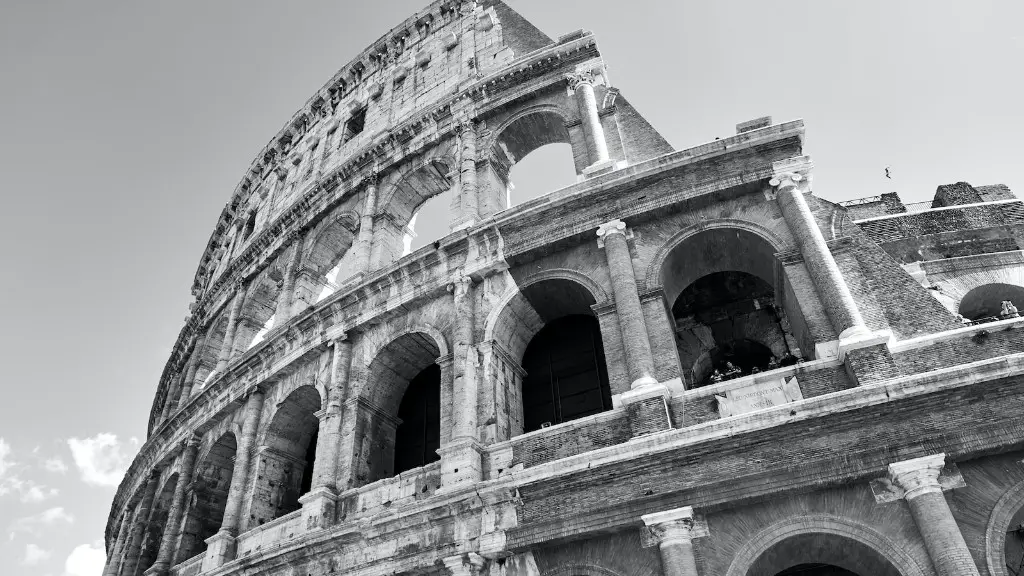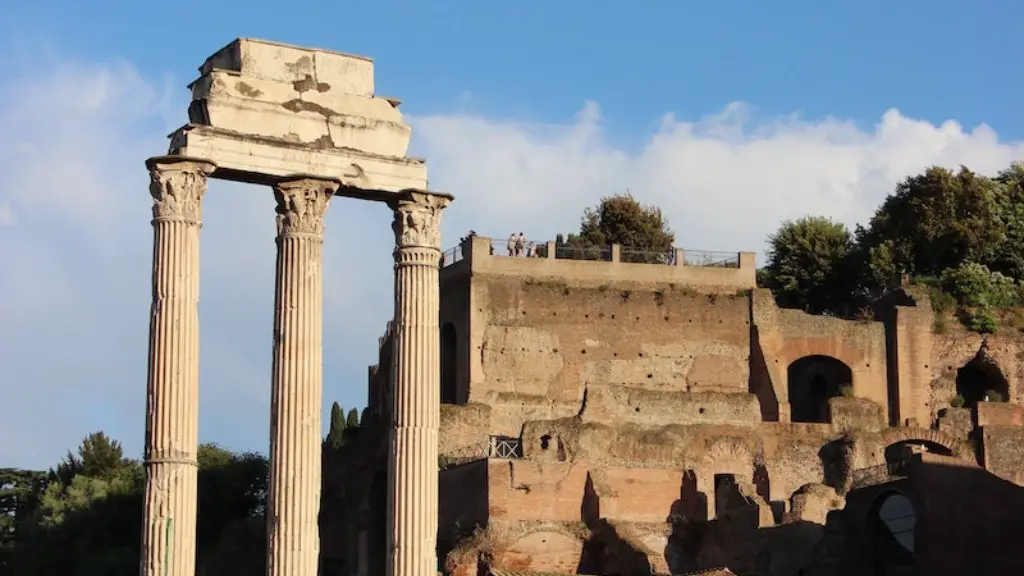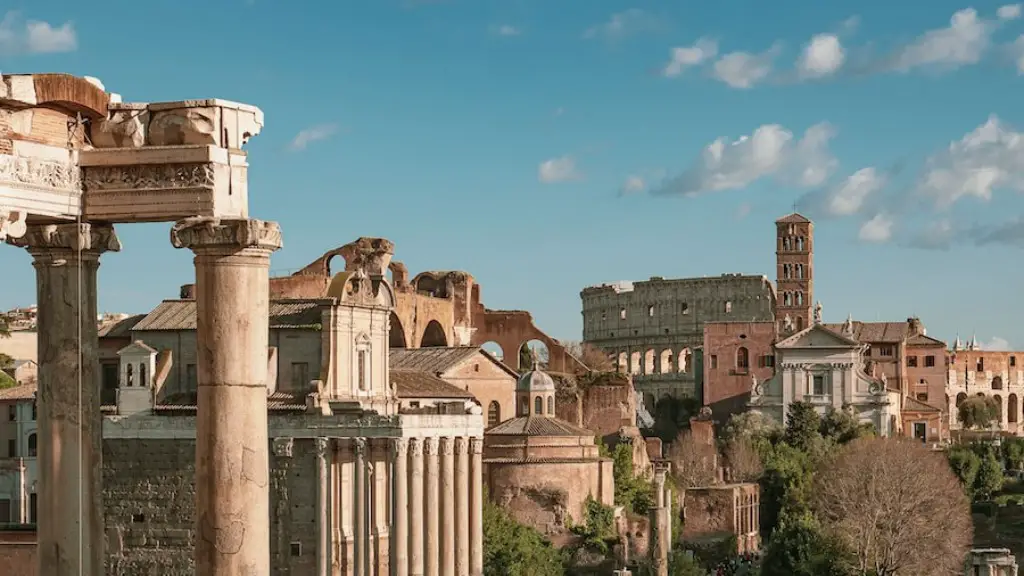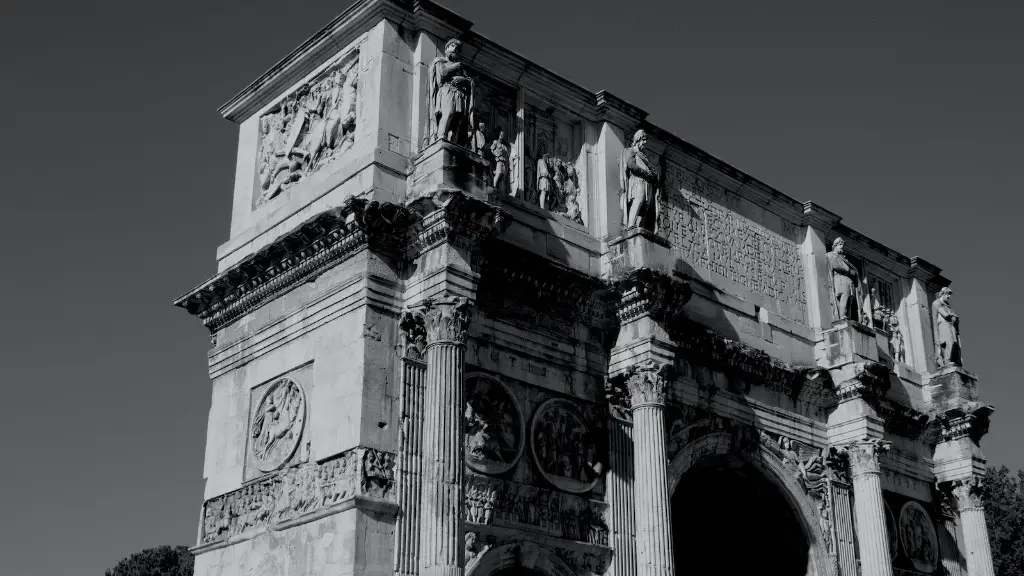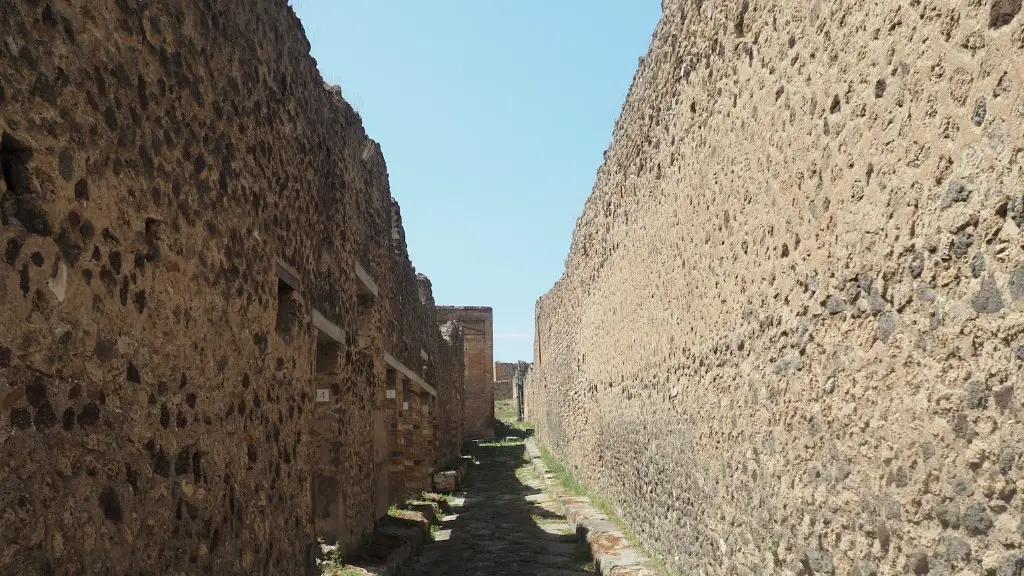Ancient Rome was one of the most powerful and influential empires in the history of the world. It was often described as an unrivaled superpower in the Mediterranean and beyond, conquering most of the known world in its heyday. But what exactly made Rome so powerful?
It wasn’t just Rome’s expansive army or advanced weapons technology that contributed to its success. According to experts, there were several key factors that underpinned Rome’s dominance. Perhaps the most important factor was the unification of the Italian peninsula and surrounding regions under one banner. Combined with efficient economic systems, a strong legal system, a powerful military, and a single, cohesive language and culture, Rome was well-positioned to become the preeminent empire of its time.
Rome’s economy was highly successful, even by modern standards. By trading with other Mediterranean societies and tapping into lucrative sources of tribute, Rome amasses a huge network of resources, allowing it to build an impressive capital city and support its vast armies. Rome also employed a sophisticated system of coinage to facilitate domestic and international commerce.
In addition, Rome’s legal system was ahead of its time, incorporating elements of civil law, criminal law and even human rights into its framework. This was an especially striking feature of Roman society – the ability to create a functional legal system that served not just Romans, but foreign subjects as well. This legal system allowed Rome to make military and commercial agreements with other nations outside its own borders.
Rome also boasted a noteworthy military machine. It was well-trained, armed and organized, allowing Romans to carry out successful campaigns in far-flung regions. Rome was particularly noted for its use of auxiliary troops from barbarian tribes, which augmented its more traditional Roman legions. This flexible and sophisticated approach to warfare not only gave Rome the upper hand in many battles, but it also enabled the incorporation of conquered people into the empire.
Ultimately, it was Rome’s combination of military might, sophisticated legal system, and expansive trading network that made it such a powerful force in the ancient world. These elements were all underpinned by a single language and culture, as well as an efficient bureaucracy, which provided the structure and support necessary for Rome’s success.
Social structure
The foundations of the Roman empire were built upon a strong social structure that allowed for the expansion of their power. This social structure was entrenched in Roman law and set clear boundaries between classes and genders. The most dominant class were the patricians who were rich aristocrats that enjoyed political power, social standing, and access to education. At the opposite end of the social ladder were the plebeians, who were poorer and had less access to social opportunities and positions of power. This strict social structure enabled a strong sense of hierarchy within the Roman empire and helped to unify the people.
This social structure was also supported by a complex set of laws that enabled peace to be maintained between members of different classes. For example, a patrician was not allowed to marry a plebeian. This was meant to ensure the status of patricians would not be diminished by matrimony. Despite this inherently unequal system, Rome created a society in which all had a sense of purpose and played a role in the foundation of a strong empire.
Engineering marvels
Ancient Romans were masterful engineers. Through their practice of constructing, building and innovating, they were able to create engineering marvels and infrastructure that were not seen before or since. From monumental architecture like the Colosseum, to ingenious plumbing systems, to the vast roads constructed to enable the movement of goods and troops, the Romans were a force to be reckoned with.
Perhaps their most impressive engineering feat was the incredible aqueduct system. This system enabled the locals to have easy access to clean water and was a true engineering feat of its time. These aqueducts not only provided a reliable and plentiful source of water but also contributed to the construction of public fountains, baths, and luxurious villas. It was these engineering marvels that were often cited by Roman leaders as signs of Roman might and power.
Political astuteness
Roman politicians were well-known for their political astuteness. They were noted for their ability to rise above personal disagreements, forge political alliances and enact policies that would strengthen their empire. The Romans were adept at incorporating local governments and religions into their expansive rule. This allowed them to maintain stability in conquered territories while gaining their allegiance.
Rome was also well-known for its knack of strategic subdivisions of its territories. This enabled them to have greater control over their far-flung lands. By dividing regions into smaller and more manageable entities, the Romans were able to maintain control without incurring too many resources. This strategic decision to divide and conquer is still a popular tactic in modern times.
Positive propaganda
The most powerful weapon for ancient Rome was not military, but rather persuasive. Swiftly and effectively, Rome used positive propaganda to help further their rule and unify their subjects. Whether it was food, sport or religion, the Romans had a knack for tailoring their propaganda to the local inhabitants. This enabled them to win over their subjects rather than forcing them to comply.
Rome also made use of monuments and architecture to project their power. These edifices were designed to awe or inspire the locals, which was a stark reminder of the might of the Roman Empire. From erecting grand statues in their honor, to inscribing famous stories into their monuments, these artworks served to showcase the power of the Romans and to win support from the local people.
Expert generals
Fame and power in Rome often revolved around its expert generals. From Julius Caesar to Scipio Africanus, these men immortalized themselves as great warriors, conquering lands and expanding the reach of the Roman Empire. Aside from being extremely skilled strategists and warriors, they were also savvy leaders. They were committed to the well-being of their soldiers and often brought riches home from the campaign, which were used to further improve the lives of their citizens and bolster the already strong Roman economy.
Generals like Julius Caesar and Scipio Africanus were celebrated for their accomplishments both in military matters and as politicians. They had a keen eye for developing strategies both on and off the battlefield, enabling Rome to reap rewards from its conquests and to expand its power. Rome’s skill in selecting talented generals ensured that their armies stayed well-disciplined and battle-ready.
